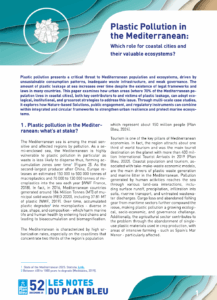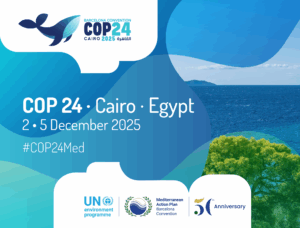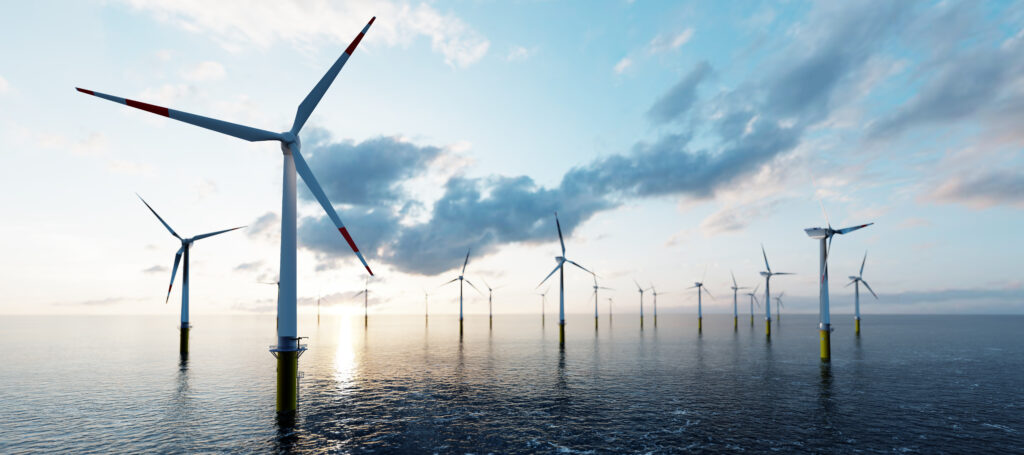Marine renewable energies include all the technologies that make it possible to produce electricity from different forces or resources in the marine environment: offshore wind, swell, currents, tides, the temperature gradient and salinity gradient.
Harnessing Marine Renewable Energy (MRE) potential in the Mediterranean is crucial to contributing to the global and European efforts towards decarbonization, in the framework of the UN Sustainable Development Goals (i.e. SDG7 Affordable and Clean Energy and SDG13 Climate Action) as well as the European Green Deal. Developing renewable energy is also essential for achieving Objective 4 – Addressing climate change as a priority issue for the Mediterranean – and Objective 5 – Transition towards a green and blue economy – of the Mediterranean Strategy for Sustainable Development. MRE represents an opportunity for economic growth in the region, can enhance the security of its energy supply and boost competitiveness through technological innovation. The continuous development of MRE technologies will also increase the efficiency of energy production.
There is an enormous but untapped potential for a further increase in renewable energy sources (wind and solar), especially in Southern Mediterranean countries, which could contribute to meet the rising energy/electricity demand at a lower cost, to ensure a cleaner energy sector and reduce energy dependency.
Several reasons (environmental, technological and social) can explain the delayed implementation of marine renewable energies in the Mediterranean region and the lack of business development compared with other maritime areas such as the Atlantic or the North Sea. The Mediterranean Sea presents specific natural conditions with lower wind, tide and current as well as greater depths.
However, there are many places in the Mediterranean Basin with considerable potential, in particular for offshore wind farming and, in a lesser degree, for wave and tidal/current farming development.

Plan Bleu’s activities: Current state of development of MREs in the Mediterranean and their potential impacts on the Marine environment
In the framework of the Interreg Med Blue Growth Community project (2019-2022) and the Mediterranean Biodiversity Protection community project (2019-2022), lPlan Bleu has been leading capitalisation activities to support modular/integrated projects dealing respectively with Blue Growth and Biodiversity protection, creating and ensuring synergies, knowledge sharing, transfer and capitalisation. To this end, Plan Bleu produced in July 2022 a report entitled “Towards sustainable Development of Marine Renewable Energies in the Mediterranean ” and a technical factsheet (in 2021) entitled “Using Ecological Sensitivity to guide Marine Renewable Energy Potentials in the Mediterranean region“.
The report aims to support policy-makers in fostering Blue Energy development in the Mediterranean by presenting:
- a state of play on production and use of marine renewable energies (wind power, tidal energy, etc.) and the growth opportunities in the Mediterranean region.
- a collection of best available technologies on marine renewable energies shared (incl. conditions for transferability);
- some good practices facilitating the co-habitation of different types of uses (e.g. OWF with tourism, aquaculture or fisheries)
- some levers and recommendations to foster the development of MREs in the Mediterranean.
Contact: Dr Céline Dubreuil, Programme Director













